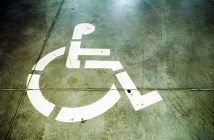Dual diagnosis is a complex health care issue that can confuse family members and, in some cases, health care professionals as well. That’s because those suffering a dual diagnosis are dealing with multiple, distinct mental health problems at once. This reality can make treatment and care especially difficult.
Unfortunately, dual diagnosis is more common than most might assume. The National Alliance on Mental Illness reported that over 7.9 million Americans struggle with two or more diagnosable mental health conditions.
Even worse, many of those individuals are not receiving the right type of treatment to meet the needs of their complex mental health problems.
It’s no surprise then that there are many unanswered questions about dual diagnosis. This blog seeks to clear up much of that confusion, help family members understand the signs of a dual diagnosis and show them how to get the right type of treatment for their loved ones.
Dual Diagnosis Explained
The most likely scenario that health care professionals refer to when they use the term “dual diagnosis” is one where an individual is dealing with a mental health issue like depression and a substance abuse problem at the same time. Addiction is recognized by the psychiatric field as its own form of mental health illness that requires unique treatment strategies.
The issue of treatment becomes increasingly complex when patients are dealing with multiple mental health challenges. Each person’s mixture of symptoms and psychological triggers is unique and many of the overlapping problems associated with their two mental health problems can make traditional treatment methods ineffective.
For example, an individual struggling with depression may use a stimulant drug, such as cocaine, to combat their symptoms and change their mood. When the cocaine leaves their system, however, their anxiety levels are likely to rise as their body returns to normal.
This series of events may in turn make the individual’s depression symptoms more frequent and severe, encouraging them to use more and more cocaine.
The vicious cycle of substance abuse and mental health symptoms would also put the individual at a higher risk for a dangerous overdose. It’s just one of many possibilities that puts those suffering from a dual diagnosis in a greater predicament than those dealing with a single mental health problem.
Undiagnosed Mental Illness and Self-Medicating
Another scenario that creates increased health risks for individuals is the intersection of a developing substance abuse habit and an untreated mental health problem. It is not uncommon for individuals who are suffering from symptoms of an untreated or undiagnosed mental illness to use alcohol or recreational drugs to feel more normal.
This self-medicating strategy puts users at an incredible risk, however. The use of addictive drugs will ramp up quickly if an individual begins using the drug as their go-to response to uncomfortable mental health symptoms.
By the time the individual even realizes they are dealing with a serious mental health problem like bipolar disorder they may have already developed a strong dependence on an addictive substance. If a person was already experimenting with drugs as their mental health symptoms manifested, then they too are at a higher risk for developing a full blown chemical dependency.
What Mental Health Problems Are Commonly Part of Dual Diagnosis?
Being informed about dual diagnosis and the mental health problems that may arise with drug abuse is crucial. This information helps individuals and their loved ones to spot the beginnings of a dual diagnosis threat before it spirals out of control.
The following mental health problems are among those most frequently exacerbated by substance addiction:
- Generalized Anxiety Disorder
- Obsessive Compulsive Disorder
- Depression
- Schizophrenia
- Bipolar Disorder
- Attention Deficit Hyperactivity Disorder
- Bulimia
- Anorexia
Alcohol is easily the most commonly abused substances included in a dual diagnosis, in large part because of how accessible it is. It is far from the only one. The following is a list of addictive substances that are known to worsen or even be a catalyst for advanced mental health symptoms:
- Alcohol
- Cocaine
- Marijuana
- Benzodiazepines
- Prescription opioid pain-relief drugs
How Do Addiction Recovery Centers Treat Dual Diagnosis?
Not every addiction recovery treatment center is prepared to help individuals dealing with a dual diagnosis. Identifying how an individual’s varied symptoms interact with one another or may create problems for treatment is an important part of the process. This requires analysis and input from experienced health care specialists.
Failure to treat both of the patient’s mental health problems at once will ultimately result in a high chance of the patient experiencing mental health symptoms and addiction habits returning somewhere down the road.
That’s why it’s so important to identify a dual diagnosis treatment center with the right health care strategies, experienced professionals with psychiatric backgrounds, and a positive track record of helping those individuals struggling with dual diagnosis.
What To Look For In Dual Diagnosis Treatment
Interested in learning more about the best dual diagnosis treatment centers? Want to speak with a professional for detailed answers to difficult questions? It may be time to start realistically investigating possible treatment programs. Here are a few things to look for to make sure you’re on the right track when identifying a treatment program:
- Staff that can speak to the specifics of dual diagnosis
- Cognitive therapy treatments available
- Behavioral therapy treatment available
- Individual and group therapy programs
Achieving Successful Long-Term Recovery
The longer one hesitates when it comes to dual diagnosis treatment, the more danger there is for long-term, potentially fatal outcomes.
Likewise, the longer one waits to get a mental health issue diagnosed, the more likely an individual may turn to self-medicating to treat their symptoms. The longer one waits to seek treatment for a dual diagnosis, the harder it will become for an increasingly complex set of mental health problems to be treated.
The sooner an individual recognizes the full scope of their problem and receives treatment from an experienced professional, the sooner they are on the path to a lasting recovery. Don’t put it off any longer.




